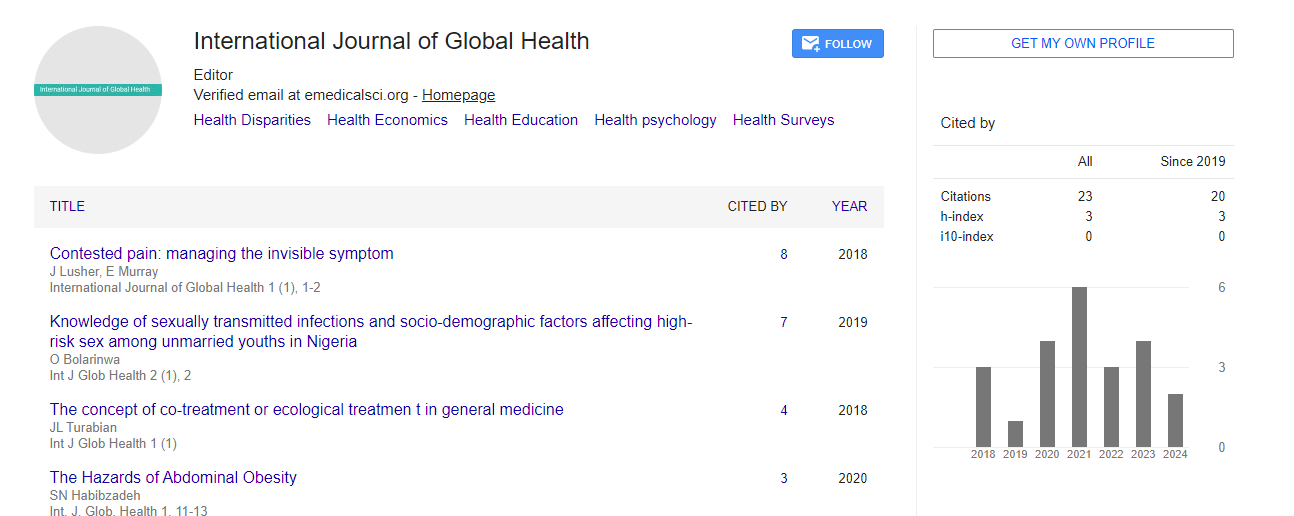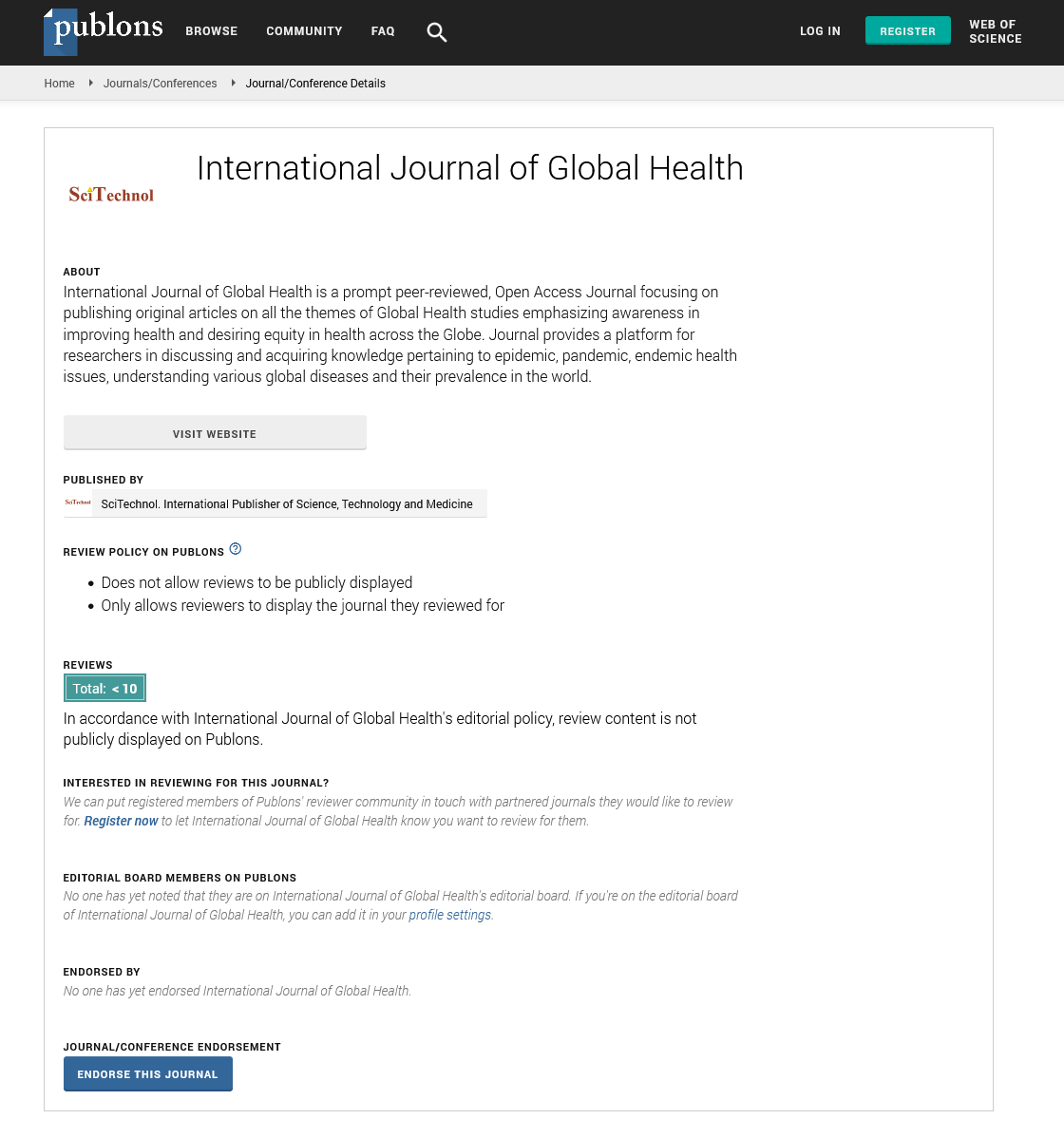Perspective, Int J Glob Health Vol: 6 Issue: 1
The Importance of Epidemiological Studies in Public Health
Alison Regan*
Department of Health Promotion, University of Massachusetts, Amherst, United States of America
*Corresponding Author: Alison Regan
Department of Health Promotion
University of Massachusetts
Amherst, United States of America
Email: reganalison@gmail.com
Received date: 21 February, 2023, Manuscript No. IJGH-23-93526;
Editor assigned date: 23 February, 2023, PreQC No. IJGH-23-93526 (PQ);
Reviewed date: 09 March, 2023, QC No. IJGH-23-93526;
Revised date: 16 March, 2023, Manuscript No. IJGH-23-93526 (R);
Published date: 23 March, 2023, DOI: 10.4172/Ijgh.1000168
Citation: Regan A (2023) The Importance of Epidemiological Studies in Public Health. Int J Glob Health 6:1 .
Description
Epidemiology is the study of the distribution and determinants of health and disease in populations. Epidemiological studies are essential in understanding the causes and risk factors of diseases, developing and evaluating public health interventions, and monitoring the impact of these interventions.
Types of epidemiological studies
There are several types of epidemiological studies, including:
Cross-sectional studies measure the prevalence of a disease or risk factor at a particular point in time. Cross-sectional studies are useful in identifying associations between risk factors and diseases, but they cannot establish causality.
Case-control studies compare individuals with a disease (cases) to those without the disease (controls) and identify risk factors associated with the disease. Case-control studies are useful in identifying potential causes of diseases, but they can be subject to selection and recall biases.
Cohort studies follow a group of individuals over time and identify risk factors associated with disease development. Cohort studies are useful in establishing causality, but they can be time-consuming and expensive.
Randomized Controlled Trials (RCTs) studies randomly assign individuals to receive an intervention or placebo and compare the outcomes between the groups. RCTs are considered the gold standard in evaluating the effectiveness of interventions, but they can be expensive and may not be feasible for all interventions.
Strengths and limitations of epidemiological studies
Epidemiological studies have several strengths, including:
Large sample sizes often involve large samples, which increases the power to detect associations and establish causality.
Generalizability aim to study the entire population, making the findings generalizable to the broader population.
Long-term outcomes in Cohort studies and RCTs can provide longterm outcomes, which can inform public health interventions and policies.
Epidemiological studies also have several limitations
• Confounding in epidemiological studies may be subject to confounding, where an unmeasured variable is associated with both the exposure and the outcome, making it difficult to establish causality.
• Bias in epidemiological studies may be subject to selection bias, recall bias, or measurement bias, which can affect the validity of the findings.
• Ethical considerations RCTs may raise ethical concerns when testing interventions with potential harm or withholding interventions that are known to be effective.
Role of epidemiological studies in public health
Epidemiological studies play a critical role in public health, including:
• Identifying risk factors help identify risk factors associated with diseases, which can inform public health interventions and policies.
• Evaluating interventions evaluate the effectiveness of interventions, such as vaccines, medications, and public health campaigns.
• Monitoring disease trends monitor the incidence and prevalence of diseases over time, which can help identify emerging public health threats.
• Developing guidelines and policies inform the development of guidelines and policies, such as screening recommendations and vaccination schedules.
Epidemiological studies are essential in understanding the distribution and determinants of health and disease in populations. While these studies have strengths and limitations, they play an important role in public health by identifying risk factors, evaluating interventions, monitoring disease trends, and informing guidelines and policies. By using a variety of epidemiological study designs and methods, public health professionals can continue to improve our understanding of disease and develop effective interventions to improve health outcomes for all.
 Spanish
Spanish  Chinese
Chinese  Russian
Russian  German
German  French
French  Japanese
Japanese  Portuguese
Portuguese  Hindi
Hindi 
